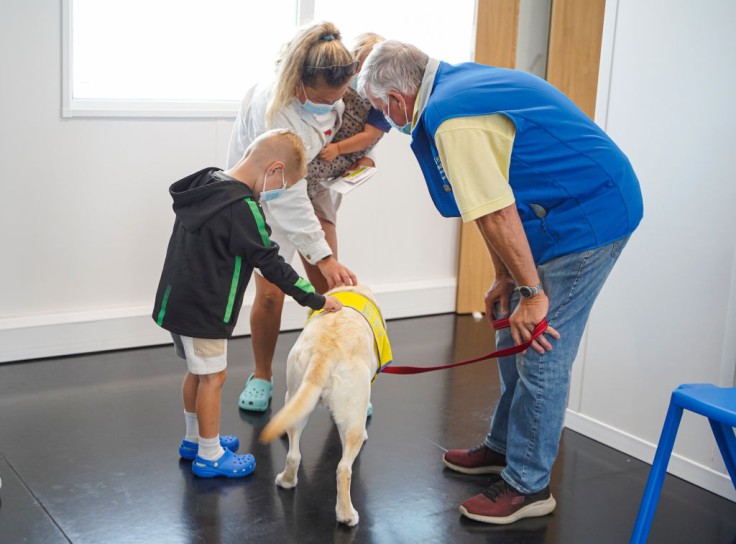
Navigating the uncertainties of a global pandemic can be daunting, especially when those closest to us, our children, are affected. With constant updates and shifting narratives, parents yearn for a concise, trustworthy guide.
If you're grappling with the alarming news of your child testing positive for COVID-19 or merely preparing for the possibility, this comprehensive guide offers actionable advice.
Delve into the essentials of what to do if your child gets COVID-19 and familiarize yourself with the vital do's and don'ts for parents to ensure your family's well-being.
Recognizing COVID-19 Symptoms in Children
Before diving into the do's and don'ts, it's paramount to understand the symptoms your child might display if they contract the virus.
While children typically exhibit milder symptoms than adults, being vigilant can aid in timely interventions:
Fever or chills: While not exclusive to COVID-19, a sudden spike in temperature can be a telling sign.
Cough and sore throat: Persistent coughing, often dry, can be a common symptom.
Shortness of breath or difficulty breathing: Especially if this appears suddenly or is out of the ordinary for your child.
Fatigue: While children naturally have their lethargic days, excessive tiredness can be a red flag.
Loss of taste or smell: This distinctive symptom sets COVID-19 apart from many other illnesses.
Muscle or body aches: General malaise or body pain can accompany the virus.
Headache: Particularly if it's severe or prolonged.
Stomach issues: This can range from diarrhea to nausea or vomiting.
Congestion or runny nose: Often mistaken for the common cold.
If your child exhibits multiple of these symptoms, especially if they've been in contact with someone who tested positive, it's crucial to consult with a healthcare professional.
Do's
Stay Calm and Reassure Your Child
It's natural to feel a gamut of emotions when you discover your child has COVID-19. However, children often take cues from their parents, so it's crucial to remain calm. Reassure them that most children experience mild symptoms, and with the right care, they'll recover swiftly.
Consult with a Healthcare Professional
As soon as you suspect or confirm that your child has COVID-19, reach out to a pediatrician or a healthcare provider. They will provide guidance tailored to your child's symptoms and needs.
Isolate Your Child
To prevent the spread of the virus to other family members, have your child stay in one room as much as possible. If you have more than one bathroom, designate one just for your sick child.
Implement Hygiene Practices
Reinforce the importance of washing hands frequently for at least 20 seconds. Ensure your child covers their mouth and nose with a tissue or the inside of their elbow when they cough or sneeze.
Sanitize and Clean Regularly
Disinfect high-touch surfaces in your home daily, including doorknobs, light switches, and electronic devices.
Monitor Symptoms
Keep a close eye on any changes in your child's health. While most children might exhibit mild symptoms, some might develop severe symptoms that require immediate medical attention.
Don'ts
Don't Panic
Remember, while the news of "Child with COVID-19" can be overwhelming, the vast majority of children experience only mild symptoms. Panicking will only add stress to an already challenging situation.
Don't Neglect Your Health
As a caregiver, it's essential to take care of yourself. Wear a mask and gloves when attending to your sick child. And most importantly, monitor your health too.
Don't Spread Misinformation
With so much information (and misinformation) available, it's easy to get overwhelmed. Always rely on reputable sources like the World Health Organization (WHO) or the Centers for Disease Control and Prevention (CDC) for updates and advice.
Don't Isolate Emotionally
While physical isolation is crucial, emotional isolation is not. Your child might be scared or anxious. Spend time talking, playing games, or watching movies together (while wearing masks and maintaining distance as much as possible).
Don't Hesitate to Seek Emergency Care
If your child shows severe symptoms like difficulty breathing, persistent chest pain, confusion, inability to stay awake, or bluish lips or face, seek emergency medical attention immediately.
In conclusion, COVID-19 has indeed introduced unprecedented challenges for families. Yet, with informed decisions, the right precautions, and a loving approach, parents can ensure their child's swift recovery.
Remember, the key is not just knowing what to do if your child gets COVID-19, but also understanding the broader context of do's and don'ts for parents. With collective efforts and adherence to guidelines, we can overcome this challenge and protect our loved ones.